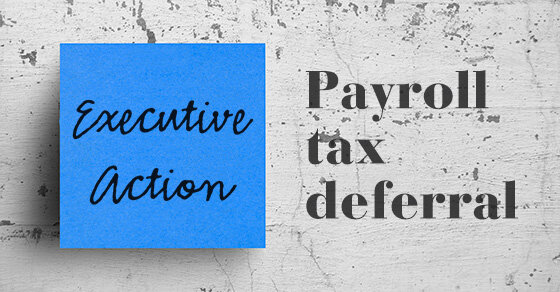What does the executive action deferring payroll taxes mean for employers and employees?
On August 8, 2020, President Trump signed an executive memorandum that defers an employee’s portion of Social Security and Medicare taxes from September 1 through December 31, 2020. At this point, the taxes are just deferred, meaning they’ll still have to be paid at a later date. However, the action directs U.S. Treasury Secretary Steven Mnuchin to “explore avenues, including legislation, to eliminate the obligation to pay the taxes.”
The exact impact on employers and employees isn’t yet known. There are many open questions, including President Trump’s legal ability to implement the deferral. Some experts believe there may be legal challenges to this executive action.
Deferral details
The payroll tax deferral will be available for “any employee the amount of whose wages or compensation, as applicable, payable during any bi-weekly pay period generally is less than $4,000.”
The deferral will be calculated on a pretax basis or the equivalent amount with respect to other pay periods. Plus, the amounts will be deferred without any penalties, interest, additional amount or addition to the tax.
Stay tuned for additional guidance
No doubt there is much to flesh out about this payroll tax deferral. Secretary Mnuchin has been instructed to provide additional guidance and employers can’t act on the deferral until that happens. It’s also possible Congress could take action. We’ll be monitoring developments and their implications, so turn to us for the latest information.
© 2020

